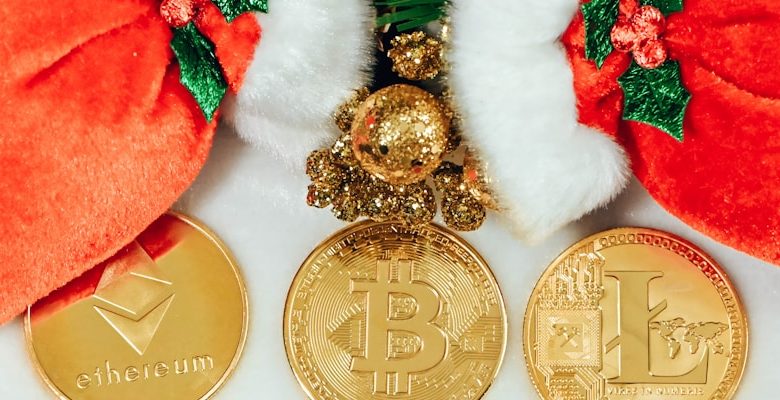Analyzing the Security Protocols of Top Crypto Exchanges

- Understanding the Importance of Security Protocols in Crypto Exchanges
- Comparing the Security Measures of Leading Crypto Exchanges
- Exploring the Vulnerabilities in Security Protocols of Top Crypto Exchanges
- Best Practices for Ensuring Secure Transactions on Crypto Exchanges
- Challenges Faced by Crypto Exchanges in Maintaining Robust Security Protocols
- The Future of Security Protocols in the Crypto Exchange Industry
Understanding the Importance of Security Protocols in Crypto Exchanges
Understanding the importance of security protocols in crypto exchanges is crucial for investors and traders in the digital asset market. Security protocols are the measures put in place by exchanges to protect users’ funds and data from cyber threats and attacks. These protocols play a significant role in building trust and confidence among users, as they ensure the safety and integrity of transactions.
Security protocols include various layers of protection, such as encryption, two-factor authentication, cold storage for funds, and regular security audits. By implementing these protocols, crypto exchanges can mitigate the risk of hacks and unauthorized access to user accounts. This not only safeguards users’ assets but also enhances the reputation of the exchange in the market.
Investors should carefully evaluate the security protocols of a crypto exchange before choosing to trade on the platform. A secure exchange should have robust security measures in place to prevent potential threats and vulnerabilities. By prioritizing security, exchanges can provide a safe environment for users to buy, sell, and store their digital assets without worrying about security breaches.
Comparing the Security Measures of Leading Crypto Exchanges
When comparing the security measures of leading cryptocurrency exchanges, it is crucial to consider a variety of factors that can impact the safety of users’ funds and personal information. Some of the key aspects to evaluate include the use of two-factor authentication, cold storage for funds, encryption protocols, and regular security audits.
One important security measure to look for is the implementation of two-factor authentication (2FA) across the platform. This adds an extra layer of protection by requiring users to provide a second piece of information, such as a code sent to their mobile device, in addition to their password. Exchanges that offer 2FA are generally considered more secure than those that do not.
Another critical security feature is the use of cold storage for the majority of users’ funds. Cold storage refers to storing cryptocurrencies offline, where they are less vulnerable to hacking attempts. Exchanges that utilize cold storage for a significant portion of their assets are less likely to suffer from large-scale security breaches.
Encryption protocols are also essential for ensuring the security of users’ data. Exchanges that use strong encryption techniques to protect sensitive information, such as personal details and transaction histories, are better equipped to prevent unauthorized access to this data.
Regular security audits are another important aspect to consider when comparing the security measures of crypto exchanges. Exchanges that undergo frequent audits by third-party security firms demonstrate a commitment to maintaining high security standards and protecting their users’ assets.
In conclusion, when evaluating the security measures of top cryptocurrency exchanges, it is essential to consider a range of factors, including two-factor authentication, cold storage practices, encryption protocols, and security audit procedures. By choosing exchanges that prioritize these security measures, users can better protect their funds and personal information from potential threats.
Exploring the Vulnerabilities in Security Protocols of Top Crypto Exchanges
When analyzing the security protocols of top crypto exchanges, it is crucial to explore the vulnerabilities that may exist within their systems. These vulnerabilities can pose significant risks to the security of users’ funds and personal information. By identifying and understanding these vulnerabilities, exchanges can take proactive measures to strengthen their security measures and protect their users.
Some common vulnerabilities found in security protocols of crypto exchanges include weak encryption methods, inadequate authentication processes, and susceptibility to DDoS attacks. These vulnerabilities can be exploited by cybercriminals to gain unauthorized access to users’ accounts, steal funds, or disrupt the exchange’s operations.
It is essential for crypto exchanges to regularly conduct security audits and penetration testing to identify and address any vulnerabilities in their security protocols. By staying vigilant and proactive in addressing security risks, exchanges can enhance trust among users and maintain a secure trading environment for all parties involved.
Best Practices for Ensuring Secure Transactions on Crypto Exchanges
When it comes to ensuring secure transactions on crypto exchanges, there are several best practices that users can follow to protect their assets. One essential practice is to enable two-factor authentication (2FA) on your account. This adds an extra layer of security by requiring not only a password and username but also something that only the user has on them, such as a piece of information only they should know or have immediately to hand – like a physical token. It significantly reduces the risk of unauthorized access to your account.
Furthermore, it is crucial to use a unique and strong password for your crypto exchange account. Avoid using passwords that are easy to guess or that have been used for other accounts. A strong password should consist of a combination of letters, numbers, and special characters.
Another important practice is to regularly monitor your account for any suspicious activity. Keep an eye on your transaction history and account balances to quickly identify any unauthorized transactions. If you notice anything out of the ordinary, report it to the exchange immediately.
Additionally, only use reputable and well-established crypto exchanges that have a proven track record of security. Do your research before signing up for an account and ensure that the exchange has robust security protocols in place, such as encryption and cold storage for user funds.
By following these best practices, crypto exchange users can minimize the risk of falling victim to security breaches and ensure that their transactions are conducted safely and securely.
Challenges Faced by Crypto Exchanges in Maintaining Robust Security Protocols
Ensuring robust security protocols is a top priority for crypto exchanges to protect the assets of their users from cyber threats. However, they face several challenges in maintaining these protocols:
- 1. **Sophisticated Cyber Attacks:** Crypto exchanges are prime targets for hackers due to the large sums of money involved. They must constantly defend against sophisticated cyber attacks such as DDoS attacks, phishing scams, and ransomware.
- 2. **Regulatory Compliance:** Crypto exchanges operate in a complex regulatory environment that requires them to adhere to strict security standards. Failure to comply with these regulations can result in hefty fines and damage to their reputation.
- 3. **Internal Threats:** Insider threats pose a significant risk to the security of crypto exchanges. Employees with access to sensitive information can misuse their privileges for personal gain or inadvertently compromise security.
- 4. **Technological Vulnerabilities:** The fast-paced nature of the cryptocurrency industry means that new technologies are constantly being introduced. Crypto exchanges must stay ahead of the curve to address vulnerabilities in emerging technologies such as blockchain and smart contracts.
- 5. **Lack of Industry Standards:** The lack of standardized security protocols in the crypto industry makes it challenging for exchanges to benchmark their security measures against their peers. This lack of uniformity can lead to inconsistencies in security practices.
In conclusion, crypto exchanges face a myriad of challenges in maintaining robust security protocols to protect their users’ assets. By addressing these challenges head-on and staying vigilant against evolving cyber threats, exchanges can enhance their security posture and build trust with their users.
The Future of Security Protocols in the Crypto Exchange Industry
In the rapidly evolving world of cryptocurrency exchanges, security protocols play a crucial role in safeguarding users’ assets and data from potential threats. As technology advances, so too must the security measures implemented by crypto exchanges to stay ahead of malicious actors looking to exploit vulnerabilities.
One of the key aspects of the future of security protocols in the crypto exchange industry is the continuous development and implementation of advanced encryption techniques. By using cutting-edge encryption methods, exchanges can ensure that sensitive information is protected from unauthorized access and interception by cybercriminals. Additionally, the adoption of multi-factor authentication processes can add an extra layer of security to user accounts, further reducing the risk of unauthorized access.
Another important trend in the realm of security protocols is the increased focus on regulatory compliance. As governments around the world crack down on money laundering and other illicit activities in the crypto space, exchanges are under pressure to adhere to strict regulatory guidelines. By implementing robust Know Your Customer (KYC) and Anti-Money Laundering (AML) procedures, exchanges can mitigate the risk of regulatory penalties and protect their users from fraudulent activities.
Furthermore, the integration of decentralized technologies such as blockchain can revolutionize the security landscape of crypto exchanges. By leveraging blockchain technology, exchanges can create a tamper-proof and transparent ledger of transactions, reducing the risk of hacks and unauthorized alterations to the system. Additionally, smart contracts can automate the execution of transactions, eliminating the need for intermediaries and reducing the risk of human error or fraud.
In conclusion, the future of security protocols in the crypto exchange industry is promising, with new technologies and strategies continually being developed to enhance the safety and integrity of exchanges. By staying ahead of the curve and implementing robust security measures, exchanges can build trust with their users and ensure the long-term viability of the cryptocurrency market.



